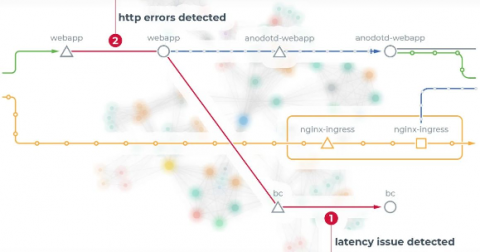The Missing Functionalities of Service Mesh Technologies - Native Anomaly Detection and Incident Correlation
Rapid software release is the new norm – and that has pushed many companies to ditch their monolithic software development approach in favor of SOA. More companies are embracing microservices – an SOA-style approach for developing and deploying business logic as small, independently deployed services – for a number of reasons: it reduces risk, is faster to deploy and it easily scales.




